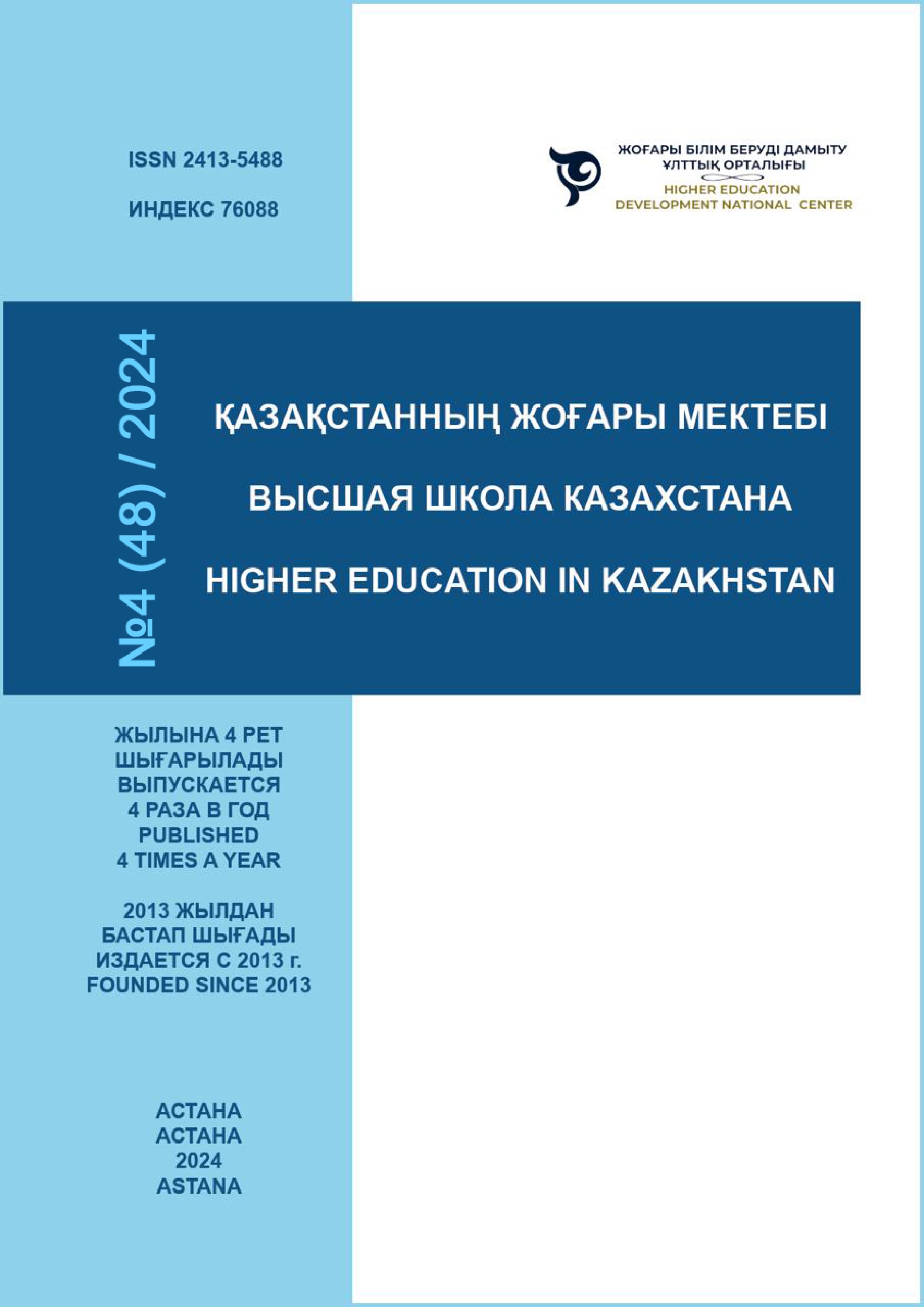PEDAGOGICAL PRINCIPLES FORMATION OF INCLUSIVE COMPETENCE OF FUTURE SPECIAL TEACHERS
DOI:
https://doi.org/10.59787/2413-5488-2024-48-4-34-43Keywords:
inclusive education, inclusive competence, professional competenciesAbstract
In the last decade, inclusive education has become the major integral parts of our lives. There are many studies on its implementation in the education system of Kazakhstan. However, there are very few studies of the inclusive competence of an inclusive education special teachers (defectologists). In the context of Kazakhstan, it is important to study the development of a model of knowledge and competencies necessary for the training of special teachers in inclusive education.How we can inclusive education be related to the inclusion of scientific research in the quality assessment system of an educational institution. Questions arise how to link profiles in inclusive education with inclusive education. The main aim of the research is to distinguish inclusive education as a new model of education and propose an individual methodology or a set of recommendations on the development of special teachers’ professional competencies. Therefore, we consider the model and principles for the development of special competencies of future special teachers in the context of inclusive education. As a result of analysis and formation of a model we gave recommendations for analyzing the pedagogical issues and formation of future special teachers' inclusive competencies. The results of the research can be used in creating educational programs in an inclusive education and consideration of methodology development for inclusive training special teachers for inclusive schools.
References
Ablyazimova, N.M. (2010). Pedagogical conditions of formation of professional competence of future physics teachers on implementation of innovative technologies: Cand. dissertation, 275. https://www.kaznpu.kz/docs/dissertasionnie_raboti/O_K_O_2.pdf
Barsai, B.T. (2010). Scientific and pedagogical foundations of formation of professional and didactic competence of future elementary school teachers: Cand. dissertation https://www.kaznpu.kz/docs/doctoranti/6/dissertation.pdf
Borodina, O.S. (2014). Formation of inclusive competence of the future teacher of health basics. Professional Education in Russia and Abroad, 1 (13), 77. https://cyberleninka.ru/article/n/formirovanie-inklyuzivnoy-kompetentnosti-buduschego uchitelya-osnov-zdorovya/viewer
Brandon, T., & Charlton, J. (2011). The lessons learned from developing an inclusive learning and teaching community of practice. International Journal of Inclusive Education, 15 (1), 165-178. https://www.tandfonline.com/DOI/abs/10.1080/13603116.2010.496214
Espenbetov B.J. (2010). Formation of professional-artistic competence of future teachers on the basis of folk-applied crafts (especially on the example of silk weaving): Cand. dissertation - Karaganda: Karaganda State University named after E.A. Boketov, 42.
Fernandez, N., Dory, V., SteMarie, L.G., Chaput, M., Charlin, B., & Boucher, A. (2012). Varying conceptions of competence: an analysis of how health sciences educators define competence. Medical Education, 46(4). 357-365.https://pubmed.ncbi.nlm.nih.gov/22429171/ DOI: 10.1111/j.1365-2923.2011.04183.x
Hill, D., & Brown, D. (2013). Supporting inclusion of at risk students in secondary school through positive behaviour support. International Journal of Inclusive Education, 8(17), 868-881.www.tandfonline.com/doi/abs/10.1080/13603116.2011.602525
Kaskatayeva, B.R. (2009). Bolashak mathematics mathematics education in the field of education: pedagogical doctoral dissertation, 50. https://nauka.kz/upload/files/zhanadilova-k-b-phd-s-sp.doc
Kenjebekov, B.T. (2005). Formation of professional competence of future specialists in the system of higher education institution: Ph.D. thesis https://www.kaznpu.kz/docs/dissertasionnie_raboti/O_K_O_2.pdf
Kim, J. (2011). Influence of teacher preparation programmes on preservice teachers’ attitudes toward inclusion. International Journal of Inclusive Education, 3(15), 355-377. https://eric.ed.gov/?id=EJ922161
Kirillova, E.A., & Ibragimov, G.I. (2016). The Inclusive Competence оf Future Teachers. Journal of Organizational Culture, Communications and Conflict, Vol. 20, Special Issue 2. 180-185. https://kpfu.ru/staff_files/F564126526/Stranicy_iz_jocccvol20no22016_16.pdf
Kudaibergenova, K.S. (2010). Theoretical and methodological foundations of competence development as a pedagogical category: Cand. dissertation, 114. file:///C:/Users/user/Downloads/загруженное.pdf
Polat, F. (2011). Inclusion in education: A step towards social justice. International Journal of Educational Development, 1(31), 50-58. DOI: 10.1016/j.ijedudev.2010.06.009. https://www.sciencedirect.com/science/article/abs/pii/S073805931000091X?via%3Dihub






